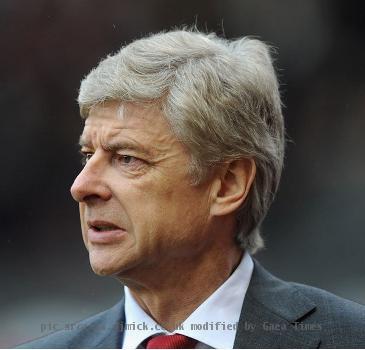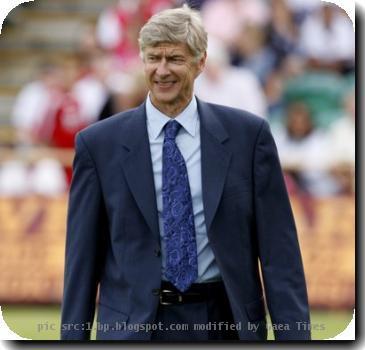Putting disallowed goal behind, United States thinks about getting ahead against Algeria
By Ronald Blum, APSaturday, June 19, 2010
US thinks about getting ahead against Algeria
IRENE, South Africa — The pattern is hard to miss: The United States falls behind by a goal or two, then tries to scramble back.
So U.S. coach Bob Bradley gathered his players together Friday night — after the thrilling comeback and disallowed goal — and reminded them about Father’s Day in Rustenburg last year, when he spoke to his team after opening losses to Italy and Brazil in the Confederations Cup.
They responded by routing Egypt 3-0, and didn’t stop there. The U.S. went on to upset European champion Spain and advanced to the final against Brazil, where the Americans took a two-goal lead before losing.
“Whether you are a father or you’re thinking about your own father, we all shake each other’s hand and give each other a hug and it’s a happy Father’s Day deal,” he said Saturday. “That turned the tide. So maybe that will do it this time around, too.”
In a tournament dominated by mostly dull matches, the U.S. has survived two edge-of-your-seat games. But time is running out.
The Americans played to a 1-1 tie with England, a controversial goal was nixed and gave them with a 2-2 tie against Slovenia and now comes Algeria on Wednesday. The U.S. can guarantee a berth in the second round with a win. If it ties, it would advance only if England loses to the Slovenes or the English tie and don’t overcome the U.S. advantage in goals, currently 3-1.
“I think going into that final game we have to go in believing we’re going to get out of the group, because that’s the only way to think,” defender Jay DeMerit said. “Is that going to happen? We’ll find out.”
After being eliminated in the first-round at the 2006 tournament in Germany, the U.S. had high hopes coming into this World Cup, especially with Landon Donovan, Clint Dempsey and Tim Howard in the prime of their careers.
While the offense has produced goals, the defense has been shaky. England and Slovenia exploited gaps between the midfield and defense, and DeMerit and Oguchi Onyewu have been slow to react at times. As a result, the opposition had space that allowed it to split the back line. In eight of the last 12 qualifiers and World Cup matches combined, the U.S. has allowed the first goal.
“It’s not like we sit and say to ourselves, all right, let’s wait until we go down 1-0, 2-0,” said Michael Bradley, the coach’s son. “You play at the highest level, you can’t give away goals like that.”
Donovan said players had only themselves to blame for the goals by Slovenia.
“We started the match poorly. We were tentative. I think we sat too deep, which caused us problems,” he said.
American players were pleased with the opening tie against England, but frustrated by the draw against Slovenia, a team they felt they should have beaten. After falling behind 2-0 at halftime, the U.S. came back on goals by Donovan and Bradley and thought they had gone ahead when Maurice Edu knocked in Donovan’s free kick in the 85th minute.
However, referee Koman Coulibaly of Mali called off the goal, apparently for a foul. He didn’t give an explanation — none was required — leaving U.S. players angry and fans back home howling. The U.S. Soccer Federation decided there was nothing in FIFA’s rules allowing an appeal, so the matter is closed.
Bradley maintained that it was a “good goal” and speculated that Coulibaly, working his first World Cup match, regretted awarding the free kick and blew his whistle to immediately negate it. He suspects there never will be an explanation, though FIFA said its refereeing experts will comment Monday on Coulibaly’s performance.
“We’re all accustomed to the fact that if it’s an NFL playoff game and there’s a call that’s in question, there will be a statement by the league from the referees, but FIFA operates differently,” Bradley said. “There are some aspects of it that are not made 100 percent clear. That seems to add to the discussion about the game. So from our end, we get used to that. And we all have friends and family who ask us the same questions that most of you ask, and you end up saying that’s just how it is sometimes, and then you move on and you get ready for the next game.”
Four years ago, the U.S. ended the first round against an African opponent and had a chance to advance. It didn’t, with Ghana winning 2-1.
Bradley has some big decisions to make for the Algeria match. With Robbie Findley suspended after getting two yellow cards, the coach likely will pair either Edson Buddle with Jozy Altidore at forward or push up Dempsey from midfield to forward — a move that could allow him to start Stuart Holden.
Edu, who came in for Jose Torres at halftime against the Slovenes, could be considered for a start alongside Michael Bradley in the central midfield.
The Desert Foxes, with speedy outside backs, reached the World Cup by beating African champion Egypt in a contentious playoff.
“Algeria is a team that has a way of getting a lot of numbers behind the ball. They’re still talented going forward,” Bob Bradley said. “To get a goal is still not always easy.”
Especially when a team is trying to come back.
Though the Americans disappoint themselves by falling behind, their rallies have convinced them of they are a resilient bunch. They have also impressed some outsiders in the soccer world.
“They always try to play football to speed up the game and pass the ball well,” Arsenal manager Arsene Wenger said. “And they have the mental strength that the Americans have when they are down, capable to come back from 2-0 down to 2-2 in a World Cup. That’s not easy. They have good mental qualities.”
AP Soccer Writer Robert Millward contributed to this report.
Tags: 2010 Fifa World Cup, Africa, Algeria, Arsene Wenger, Eastern Europe, Europe, Events, Fifa, International Soccer, Irene, North Africa, North America, Slovenia, South Africa, Southern Africa, United States, World Cup

